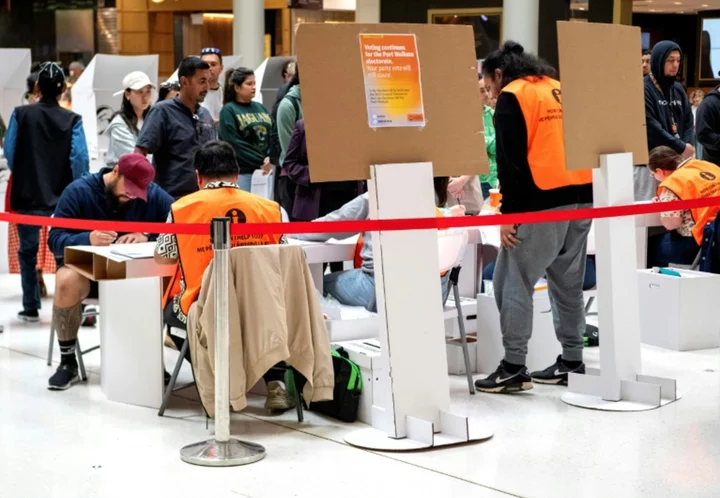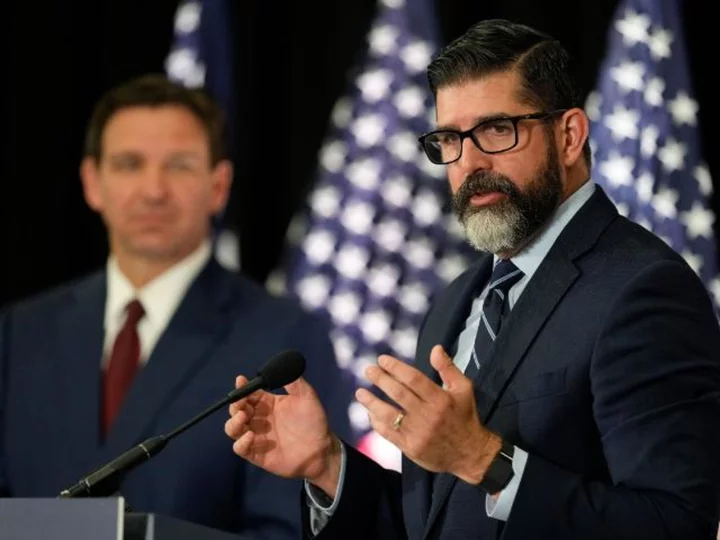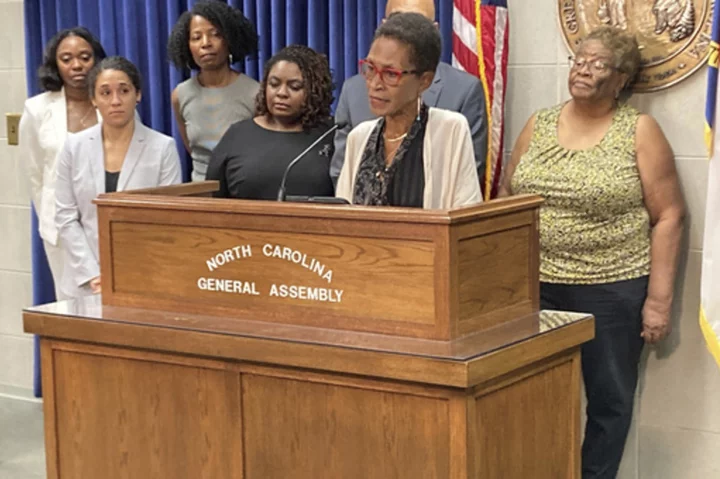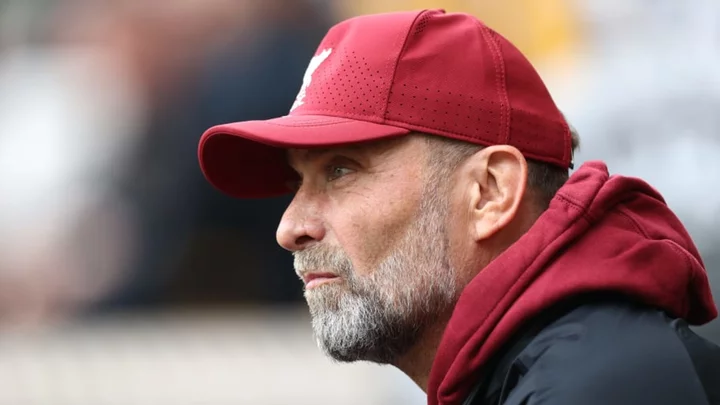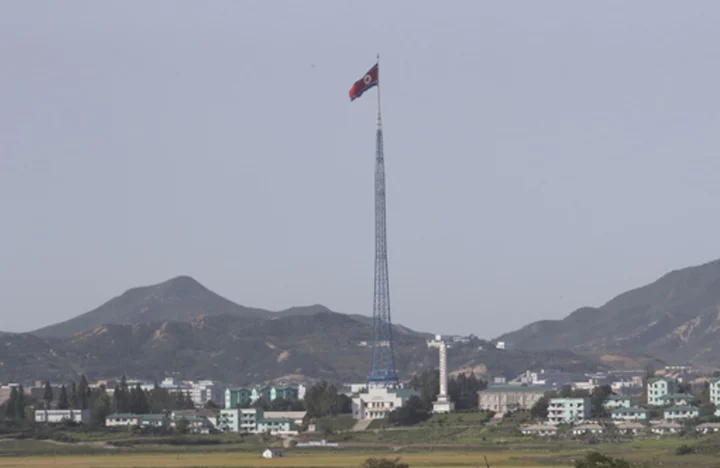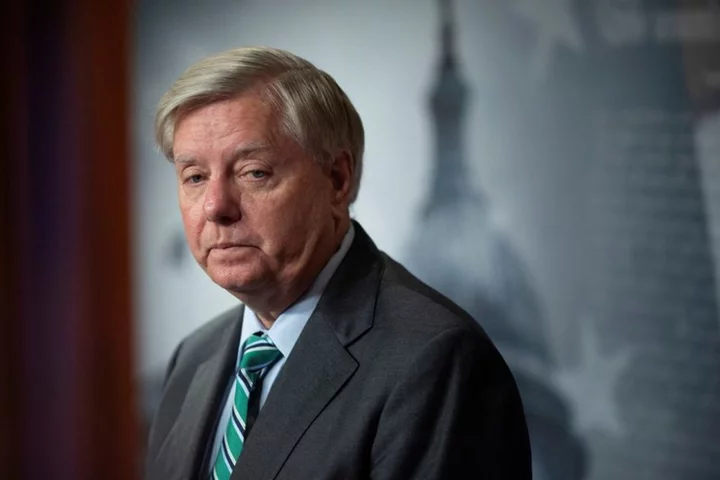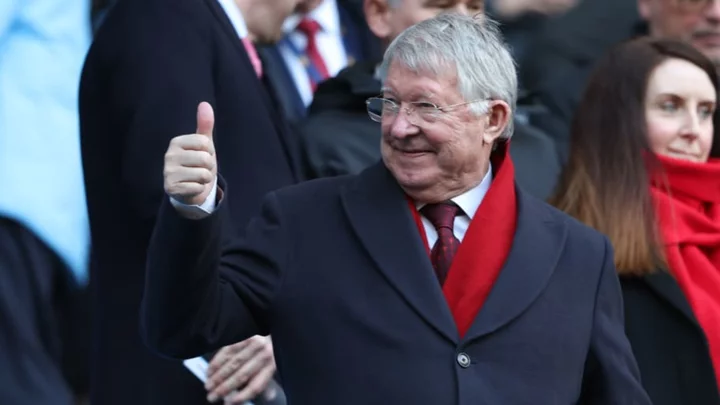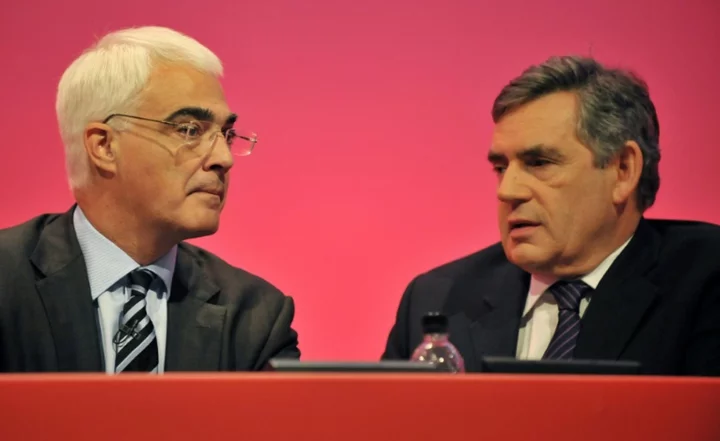A centre-right coalition Saturday surged to an early lead in New Zealand's election, as voters punished an incumbent Labour government rocked by Jacinda Ardern's surprise resignation earlier this year.
The National Party and its coalition partner ACT were projected to win 65 seats with more than 30 percent of the vote tallied -- enough to secure a majority in New Zealand's 120-seat parliament.
Meanwhile the ruling Labour party, which secured a landslide victory under Ardern in 2020, was on track to suffer one of its heaviest-ever election defeats with forecasts pointing to 32 seats.
Results began trickling into counting centres after polls closed on Saturday evening, with the country collectively holding its breath to see if the numbers would deliver a widely anticipated change of government.
Prime Minister Chris Hipkins replaced Ardern after she stepped down in January, but has lacked the "rock star" appeal of his predecessor while navigating an increasingly dire economic outlook.
Instead, the National Party -- led by former airline executive Christopher Luxon -- is the favourite to stitch together a governing coalition.
On polling day in New Zealand's capital Wellington many voters were predicting a new government would be elected, but not all were enthused at the prospect.
- 'Quite bleak' -
"It feels quite bleak, that people might be voting for change for the sake of change," public servant Olivia Eaton told AFP.
Wellington resident Jacqui Barber, who works in the pharmaceutical industry, said she was "filled with trepidation about the outcome of this election".
"It has become a personality competition between the major party leaders, punctuated by weekly single-issue promises to elicit support," she said.
"Neither of the major parties is willing to adequately address the elephant in the room -- our need for decisive climate action."
In small town Waikanae, about an hour's drive north of Wellington, butcher Terry McKee said the spiralling cost of living was the single most important election issue.
But the 56-year-old said a new government was not necessarily the answer the country needed.
"Things are tight for everyone. Interest rates, fuel costs all drive costs up, but I don't know what another government is going to do," he told AFP.
"Are we going to change for the sake of changing, and not for the reason of a better government?"
Both Luxon and Hipkins have variously tried to woo voters with promises to ease surging petrol prices, fix chronic housing shortages, and halt the skyrocketing prices of staple foods.
- 'Coalition of chaos' -
Hipkins offered free prescriptions and basic dental care for the under-30s, plus cutting tax on fruit and vegetables.
Luxon pledged tax cuts worth up to NZ$125 (US$74) per week for an average-income family, partly paid for by a controversial plan to tax top-end luxury homes bought by foreigners.
His National Party is hoping to win enough seats to either govern alone, or to form a two-party coalition with the conservative ACT party.
Surveys in the lead up to polling day suggested he may also need the support of New Zealand First, a populist minor party led by the debonair 78-year-old maverick Winston Peters.
New Zealand First and ACT have squabbled throughout the election campaign, prompting Hipkins to deride the potential three-way arrangement as an unruly "coalition of chaos".
During his turbulent nine months in office, Hipkins has struggled to emulate Ardern's popularity -- which catapulted the party to power in 2017, followed by a landslide victory in 2020.
ryj-sft/djw/mtp

